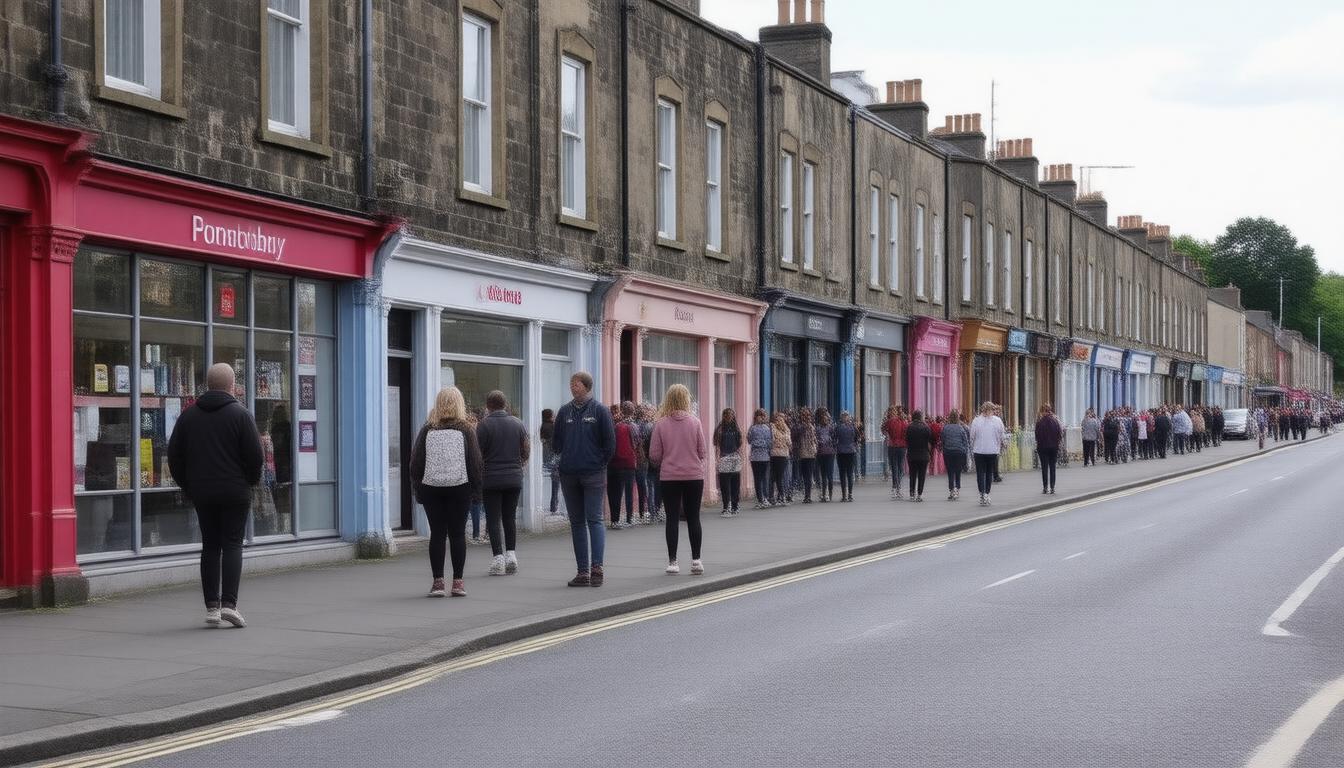In a notable development regarding housing policies in North Belfast, the Belfast City Council has unanimously rejected a proposal to convert a residential property on Ponsonby Avenue into a House of Multiple Occupation (HMO) due to widespread community concerns. This decision underscores growing apprehension among local residents about the proliferation of HMOs in the area, which have been linked to various social issues, including increased noise and traffic congestion. This rejection marks the second time in six months that a HMO conversion application for this street has been denied, amidst a broader pattern of refusals in the city where a total of four similar applications have been turned down this year, particularly under the guidance of the Sinn Féin party.
Key Takeaways
- Belfast City Council has rejected another HMO conversion application due to strong community objections.
- Concerns over parking, traffic, and noise are significant factors driving local opposition to HMOs.
- Council policy limits HMOs to a maximum of 10% in certain areas, reflecting the community’s desire to maintain residential character.
Background on HMO Policies and Community Impact
The recent denial by Belfast City Council of the application to convert a property on Ponsonby Avenue into a House of Multiple Occupation (HMO) reflects ongoing tensions surrounding HMO policies in North Belfast. This decision marks the second refusal for HMO conversion on Ponsonby Avenue in the past six months and contributes to a total of four rejected applications this year, particularly influenced by the Sinn Féin party’s stance against such developments (The Irish Times, 2024).
HMOs, defined as residences accommodating three or more tenants living from different addresses, have sparked debates over their impact on local communities. These concerns are particularly pronounced in areas like the Holylands and Stranmillis, known for high concentrations of student housing, where issues such as anti-social behavior and community disruption have become prevalent (Belfast Live, 2024). In response to the growing number of HMO applications in North Belfast, the council has established stringent policies to regulate their proliferation, particularly the requirement that HMOs must constitute no more than 20% of the housing stock in any local area, with Ponsonby Avenue’s limit set even lower at 10% (Belfast City Council, 2024).
Despite recommendations from council officers to approve HMO conversions, the Planning Committee ultimately sided with community objections, which raised legitimate concerns regarding parking, traffic safety, waste management, and noise levels. Local residents have voiced fears about the potential erosion of family-oriented housing and the overall character of their neighbourhood due to the transient nature of HMO tenants (BBC News, 2024). Previous refusals include an application for a six-bed HMO in April on the same street and another on Limestone Road, underscoring a clear trend towards prioritising community cohesion over market demands for additional rental properties.
As the debate continues, the local community and policymakers strive to reach a balance between housing needs and the preservation of North Belfast’s unique character.
Council’s Decision and Community Response
The latest refusal signals a growing resistance among residents against the proliferation of HMOs in North Belfast, as community members express a desire to maintain the area’s character (The Guardian, 2024). Local councillor Mark J. O’Donnell, representing Sinn Féin, highlighted the importance of listening to constituents who fear the negative implications of an increased HMO presence, such as reduced property values and declining family-oriented environments (Northern Ireland Assembly, 2024). This grassroots opposition showcases a broader trend of civic engagement, where communities are becoming more vocal in local planning decisions, demanding transparency and accountability from elected officials on housing matters. As local stakeholders including residents, policymakers, and housing developers navigate the increasingly complex landscape of urban housing policy, their conversations are set to recalibrate the dynamics of North Belfast’s residential composition.
Feel free to contact us via WhatsApp, social media, or email.
Always find the best rooms to rent & HMOs for sale in the UK at HMO Reporter.





